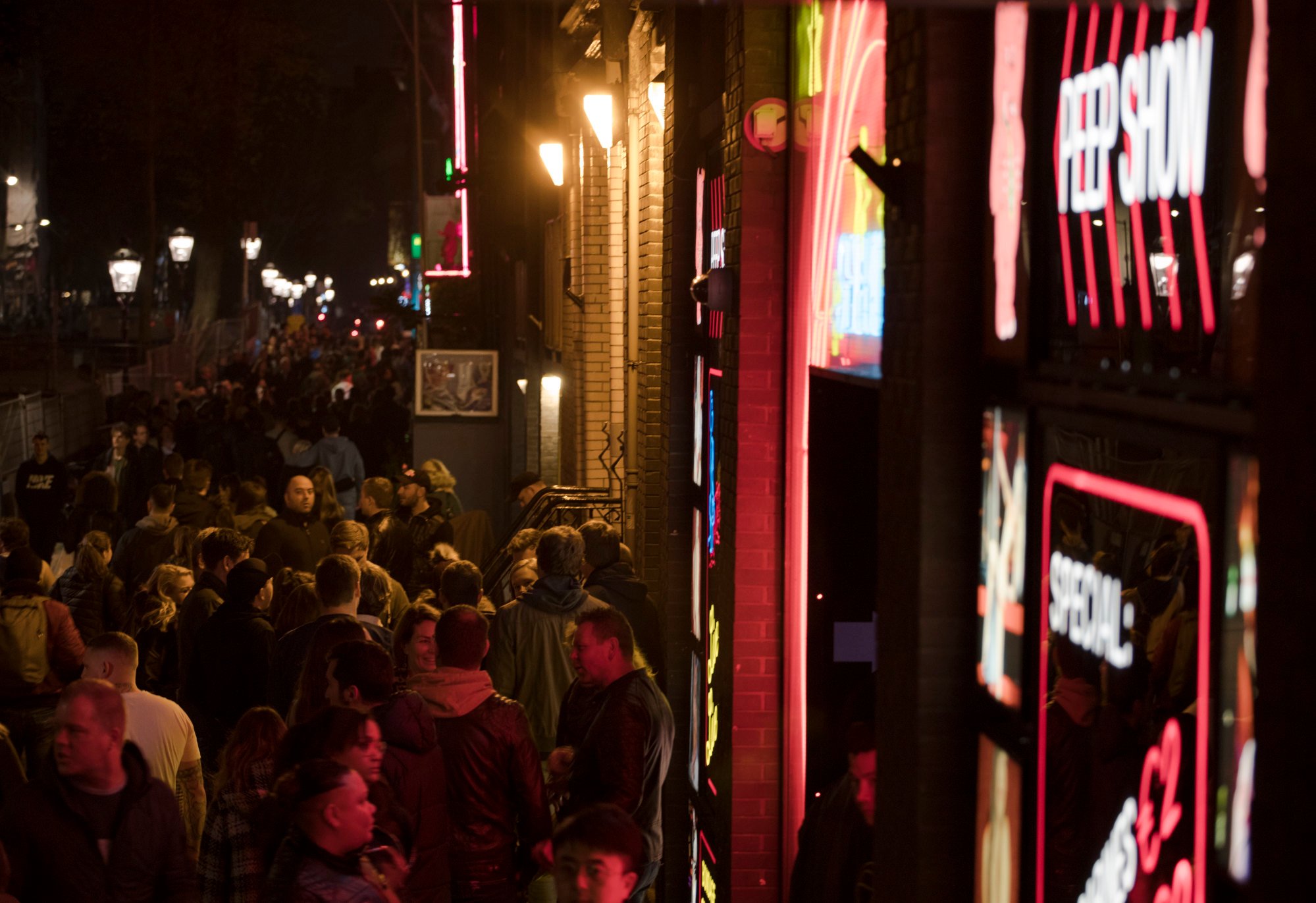
Amsterdam sex workers protest against new rules seeking to tame red light district
- Amsterdam officials say a set of reforms designed to rebrand the city’s wild image will help reduce crime and nuisance behaviour in the area
- The Dutch capital’s famed prostitution windows will now close three hours earlier, at 3am – and sex work businesses could soon move to a different part of town
Sex workers in Amsterdam say they are being unfairly targeted by city plans to tame its red light district.
Known as De Wallen, the city’s centuries-old district takes its nickname from the red neon lights that highlight the 300 windows where sex workers can offer their services.
But the Dutch capital’s famed prostitution windows will now close earlier – and they could soon move to a different part of town.

Amsterdam officials say a set of reforms designed to rebrand the city’s wild image will help reduce crime and nuisance behaviour in the area, but opponents of the measure say the move will only increase stigma as it uses sex workers as a scapegoat for a much larger problem: the city’s issues with mass tourism.
Last month, the municipality said it would ban the smoking of marijuana. And as of April 1, sex work businesses will be forced to close their doors three hours earlier, at 3am.
The changes come amid talks of moving the sex workers to a large “erotic centre” away from the heart of the city.
Amsterdam says party-seeking British men no longer welcome
“We really don’t agree with the solutions that they are offering, that they’re imposing. They’re not even negotiating with the sex workers’ organisations,” sex worker Sabrina Sanchez told Agence France-Presse on Thursday.
They also handed Mayor Femke Halsema a petition signed by 266 sex workers calling for more police in the area, instead of reduced hours and a different location.
Felicia Anna, a former sex worker and the chairwoman of Red Light United, a union for window workers in the district, said the change in hours could have a devastating effect on people’s income and could leave many with difficulty affording basic expenses.
“Most of the workers start to work after 12 or 1 o’clock in the morning, when the bars start to close down, ” Anna told CNN. “Now you have maybe two hours to make any money, which is not enough.”

Violet is the head of the Prostitution Information Centre, an organisation that provides information and education about sex work. She said trans people would be especially impacted by the reduced hours since many clients who come in the later hours request transgender sex workers.
Violet also noted that the earlier closing time could put sex workers in danger.
“If you’re travelling home at 3 o’clock in the morning, especially if everything is closed, then that leaves you, as a sex worker, in greater vulnerability,” she said.
In January 2020, the city’s government banned group tours to the district, citing abusive behaviour, unwanted photography and other disruptions.

